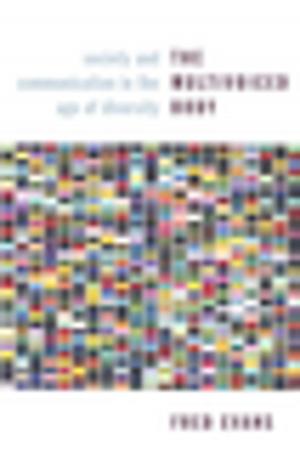Record of Miraculous Events in Japan
The Nihon ryoiki
Nonfiction, History, Asian, Japan, Fiction & Literature, Literary Theory & Criticism| Author: | ISBN: | 9780231535168 | |
| Publisher: | Columbia University Press | Publication: | July 23, 2013 |
| Imprint: | Columbia University Press | Language: | English |
| Author: | |
| ISBN: | 9780231535168 |
| Publisher: | Columbia University Press |
| Publication: | July 23, 2013 |
| Imprint: | Columbia University Press |
| Language: | English |
The Nihon ryoiki, a collection of setsuwa, or "anecdotal" tales, compiled by a monk in late-eighth- or early-ninth-century Japan, records the spread of Buddhist ideas in Japan and the ways in which Buddhism's principles were adapted to the conditions of Japanese society. Beginning in the time before Buddhism was introduced to Japan, the text captures the effects of the nation's initial contact with Buddhism—brought by emissaries from the king of the Korean state of Paekche—and the subsequent adoption and dissemination of these new teachings in Japanese towns and cities.
The Nihon ryoiki provides a crucial window into the ways in which Japanese Buddhists began to make sense of the teachings and texts of their religion, incorporate religious observances and materials from Korea and China, and articulate a popularized form of Buddhist practice and belief that could extend beyond monastic centers. The setsuwa genre would become one of the major textual projects of classical and medieval Buddhism, with nearly two dozen collections appearing over the next five centuries. The Nihon ryoiki serves as a vital reference for these later works, with the tales it contains finding their way into folkloric traditions and becoming a major source for Japanese authors well into the modern period.
The Nihon ryoiki, a collection of setsuwa, or "anecdotal" tales, compiled by a monk in late-eighth- or early-ninth-century Japan, records the spread of Buddhist ideas in Japan and the ways in which Buddhism's principles were adapted to the conditions of Japanese society. Beginning in the time before Buddhism was introduced to Japan, the text captures the effects of the nation's initial contact with Buddhism—brought by emissaries from the king of the Korean state of Paekche—and the subsequent adoption and dissemination of these new teachings in Japanese towns and cities.
The Nihon ryoiki provides a crucial window into the ways in which Japanese Buddhists began to make sense of the teachings and texts of their religion, incorporate religious observances and materials from Korea and China, and articulate a popularized form of Buddhist practice and belief that could extend beyond monastic centers. The setsuwa genre would become one of the major textual projects of classical and medieval Buddhism, with nearly two dozen collections appearing over the next five centuries. The Nihon ryoiki serves as a vital reference for these later works, with the tales it contains finding their way into folkloric traditions and becoming a major source for Japanese authors well into the modern period.















